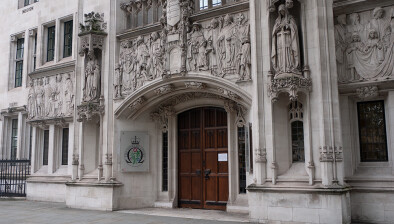UK Supreme Court dismisses appeal by mail order company seeking to recover money from HMRC as input VAT

The UK Supreme Court has dismissed an appeal by a mail order company seeking repayment from HMRC of sums it claimed should have been regarded as recoverable VAT.

About this case:
- Citation:[2020] UKSC 15
- Judgment:
- Court:UK Supreme Court
Zipvit Ltd, which had mistakenly never been charged VAT for use of a special mail service provided by Royal Mail, argued that part of their payments should nonetheless be regarded as VAT and thus could be claimed back from the tax authority. The proceedings were considered a test case, as the same mistake had been made by Royal Mail in dealings with other companies potentially resulting in a £500m to £1 billion liability for HMRC.
The appeal was heard by Lord Hodge, Lady Black, Lord Briggs, Lord Sales, and Lord Hamblen. Roger Thomas QC appeared for the appellant and Sam Grodzinski QC and Eleni Mitrophanous QC for the respondent.
Unmerited windfall
The appellant, a trader selling vitamins and minerals, had been supplied a number of business postal services under contract by Royal Mail. Royal Mail had understood that the services it provided to the appellant were exempt from input VAT, an understanding shared by HMRC, which had issued guidance to the same effect. However, a 2009 EU Court of Justice decision found that the perceived exemption did not apply to supplies of services that had been individually negotiated.
On the basis of the CJEU’s judgment, Royal Mail should have charged the appellant VAT at the relevant rate and accounted for that to HMRC. The appellant made two claims against HMRC in September 2009 for deduction of input VAT, calculated on the basis that the prices it had paid ought to be treated as if they had included a VAT element. This claim was rejected by letter dated 12 May 2010.
An appeal was made to the Tax Chamber of the First-tier Tribunal. The Tribunal held that HMRC had rightly exercised their discretion and any payment would have amounted to an unmerited windfall for the appellant, which would have in economic terms received services from Royal Mail for considerably less than their commercial value. Further appeals to the Upper Tribunal and the Court of Appeal were dismissed.
On appeal to the Supreme Court, counsel for the appellant submitted that it had been entitled to deduct the input VAT under article 168(a) of the EU Principal VAT Directive of 2006. HMRC contended that on a proper construction of the Directive there had been no actual VAT due or paid, and Zipvit could not recover any VAT without invoices showing that VAT was due. A reference to the CJEU was made in order to clarify aspects of the Directive, which allowed the Supreme Court to make a decision.
No sound basis
In a joint opinion with which the other three judges agreed, Lord Briggs and Lord Sales said of the CJEU’s decision: “Article 168(a) must be interpreted as meaning that VAT cannot be regarded as being ‘due or paid’ within the meaning of that provision where the trader and the supplier have mistakenly assumed, on the basis of an incorrect interpretation of EU law by the national authorities, that the supplies at issue were exempt from VAT.”
They continued: “[Where] the relevant invoices did not refer to it, in a situation where the contract between the trader and the supplier provides that, if such tax were due, the recipient trader should bear the cost of it, and where no step to recover the VAT was taken in good time, the result [is] that any action by the supplier and the tax authorities (HMRC) to recover the unpaid VAT is time-barred.”
Noting that the CJEU did not require to address the invoice issue in light of its answer to the discretion question, the judges observed: “[The issue] is academic and turns on a point of EU law which is not clear and has not been the subject of a definitive ruling by the Court of Justice. There may have to be debate on another occasion whether the judgment of the Court of Justice in this case has any bearing on the reasoning of the Tribunals and the Court of Appeal in relation to this issue.”
Turning to whether HMRC was entitled to exercise its discretion not to refund the appellant, they said: “In the circumstances of the case, as set out above, Zipvit had no right under the Directive to recover from HMRC any element of input VAT. Moreover, in commercial terms, as the Tribunals and the Court of Appeal correctly pointed out, any payment to Zipvit would have been an unmerited windfall.”
The judges concluded: “We therefore agree with their conclusion that, had HMRC considered the exercise of their discretion under regulation 29(2), they would have been bound to have concluded that no payment should be made to Zipvit. There was no sound basis on which it would have been appropriate to use public monies to make any such payment.”
The appeal was therefore dismissed.










